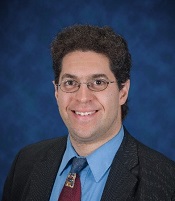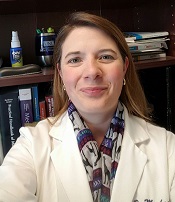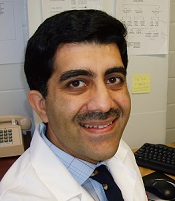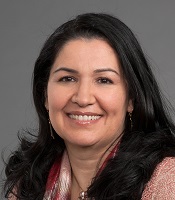
Welcome to the Journal of Applied Clinical Pathology (JACP)! The field of clinical pathology and laboratory medicine is expanding at a remarkable rate with applications to novel biomarkers towards existing as well as new disease spaces, laboratory centric pharmacovigilance, automation, information technology, sensor based technology and the like. Laboratory Medicine’s positioning in patient management with respect to disease diagnosis and prognosis is becoming integral to “pay for performance” initiatives, laboratory utilization and payor logistics. It is the intention of the Journal to become the premier publication for the discipline of clinical pathology and laboratory medicine due to its expert editorial board and peer reviewer base, competitive publication fee schedule, international open access visibility and retention of copyright to you – the author – as a means for you to maintain control and promote increased visibility of your important contributions related to laboratory centric healthcare.
I invite you to submit your groundbreaking seminal works to the Journal including original research, new methods, reviews, editorials, and critical evaluations, case reports and short papers in the field of clinical pathology and laboratory medicine. The Journal focuses on the expanding role of the clinical laboratory and its professionals in the translational, clinical and public healthcare sectors as it relates to the diagnosis and management of human disease.
The scope of the Journal encompasses laboratory-centric human disease diagnosis and management including chemical pathology (i.e. clinical chemistry, endocrinology, hormone assays), clinical toxicology (i.e. drug monitoring), clinical microbiology (i.e. bacteriology, mycology, parasitology and virology), hematology/ hematopathology (i.e. flow cytometry, oncology), immunology/ serology (i.e. infectious disease, autoimmunity), transfusion medicine (i.e. immunohematology, blood utilization), molecular pathology, (i.e. precision medicine, cytogenetics, genomics), laboratory logistics (i.e. management, automation, informatics), applied biotechnology and other related disciplines.
It is our intention to provide the field of clinical pathology a unique vantage point in the global medical publication arena and provide the discipline with the attention it deserves. The ability to highlight clinical pathology – also known as “fluids medicine” – in the continuously changing healthcare landscape will offer a unique perspective and projection of this discipline to provide and affect patient centric, evidenced based, fiscally responsible healthcare as well as influence laboratory centric healthcare policy and patient management. It is my pleasure to welcome you.
Sincerely,
Martin H. Bluth, MD, PhD
Editor in Chief
Journal of Applied Clinical Pathology (JACP)

Dr. Bluth completed his MD and PhD (Immunology) degrees at SUNY Downstate Medical Center, residency in Clinical Pathology at Kings County Hospital, his fellowship training in Transfusion Medicine at the New York Blood Center and post-doctoral fellowship in tumor markers at the Veteran’s Affairs Medical Center in NY. He maintains board certification in his disciplines. He previously served as Chief Medical Officer for Consolidated Laboratory Management Systems, Vice President for BioMedica Corporation, Director of Research for SUNY Downstate Medical Center among other top tier positions and currently holds an appointment as Professor of Pathology at Wayne State University School of Medicine, Director of Pathology Laboratories for Michigan Surgical Hospital and National Medical Director for Kids Kicking Cancer. He also serves as Associate Editor for Henry’s Clinical Diagnosis and Management by Laboratory Methods, the premier textbook on Clinical Pathology and Laboratory Medicine, as Editor in Chief for four peer reviewed medical journals, and reviews for over a dozen other journals in various disciplines. He is a serial entrepreneur and founder of Bluth Bio Industries, LLC which provides consultation as well as facilitates and matures novel biomarkers, devices and therapeutics (www.bluthbio.com). Dr. Bluth is a leader in laboratory centric drug testing and pharmacovigilance guidance and serves on numerous committees including the Michigan State Medical Society Committee on Health Care Quality, Efficiency and Economics, and consults for numerous healthcare associations and political advocacy entities. Dr. Bluth is considered an expert in his fields, has authored over 250 publications, and is sought after for speaking engagements and consultation worldwide.



Dr. A. K. Mukhopadhyay received his medical degree (MBBS) from the University of the Calcutta in 1977 and got his postgraduate medical degree (MD) in Pathology in 1981 following three-year residency from All India Institute of Medical science (AIIMS). Since then he is at AIIMS holding various positions. He is Professor of the Dept of Laboratory Medicine at this India’s premier Institute for last 15 years and Head of the Dept. for last 11 years. He is the pioneer in India to start the MD course in Laboratory Medicine, which has been running since 1997. Routinely he supervises about one million investigations, per annum, of the outpatients and inpatients of AIIMS. He built up carrier of several students in Laboratory Medicine awarding them MD or PhD degree. He is examiner in Pathology for several eminent universities in India. His research interest is in neurodegenerative disease, molecular psychiatry, psychobiology and biologically inspired systems science.

Dr. May received her doctoral degree in pathology and veterinary science (bacteriology track) from the University of Connecticut. She is an associate professor of microbiology and infectious disease at the University of New England College of Osteopathic Medicine. She was previously appointed in the Department of Biological Sciences at Towson University (holding the Fisher Endowed Chair of Biological Sciences from 2012-2013) and was appointed as a postdoctoral fellow and then a research assistant professor in the Department of Infectious Diseases and Pathology at the University of Florida's Emerging Pathogens Institute. Her research topics include the evolution of virulence in bacterial (Mycoplasma), parasitic (Filariae), and viral (Zika Virus) systems; infection-mediated pain; and investigates novel diagnostic tests for antimicrobial resistance and Lyme disease. Dr. May has been funded by the National Institutes of Health, is a past chair of the American Society for Microbiology’s Division G, chair of the International Research Programme in Comparative Mycoplasmology’s Molecular Genetics Team, and an elected member of the International Committee for the Systematics of Prokaryotes (Mollicutes Taxonomy Subcommittee). She also volunteers professional time for ASM’s international laboratory capacity (LabCAP) program and for the United Nations Educational, Scientific, and Cultural Organization. She is the author of 31 peer-reviewed publications and 8 invited book chapters, and has given several platform presentations at national and international meetings.





Dr. Schneider is currently an Assistant Professor at the Lewis Katz School of Medicine at Temple University. She received her MD from the Drexel University College of Medicine followed by an anatomic and clinical pathology residency at Temple University and a surgical pathology fellowship at the Hospital of the University of Pennsylvania. She is board certified in anatomic and clinical pathology by the American Board of Pathology. She is a practicing surgical pathologist with areas of interest in dermatopathology and gastrointestinal pathology. Dr. Schneider also has a strong interest in medical education and serves as the Director of the pathology residency program at Temple University Hospital.


Dr. Ziyan Salih received her medical degree from the University of the Salahaddin, School of Medicine. She completed her anatomic and clinical pathology residency training at the University of Mississippi Medical Center, Jackson, MS, and her Fellowship training in surgical pathology and cytopathology at Emory University Hospital, Atlanta, GA. She currently practices surgical pathology and cytopathology at Wake Forest Baptist Medical Center, Winston-Salem, NC. Dr. is board certified in Anatomic Pathology, Clinical Pathology and Cytopathology by the American Board of Pathology and is board certified by the International Board of Cytopathology by the International Academy of Cytopathology. Dr. Salih’s interests include breast pathology, cytopathology, circulating tumor cells and malignancies of unknown origin.
The use of PRP injection for treatment of plantar fasciitis resulted in significant improvement in pain according to VAS, PRS, and FFI and a reduction in the thickness of the plantar fascia as measured by US, compared to the saline group.
The clinical pathologist/laboratory medicine physician serves as the ideal health care partner to synergize with the patient-physician-unit to temper curious results, obviate the “light switch” effect, provide guidance on current and emerging test utilization and management, navigate the DTC marketplace and educate patient and physician alike as required, and to ultimately incorporate lab test results into actual optimization of patient care. It is through this approach that the patient-physician-laboratorian triumvirate can maximize the experience to positively affect patient centric, evidenced based, fiscally responsible healthcare in the ever-changing medical landscape.
The high incidence of brain metastasis and the comparison of metastatic and non-metastatic phenotypes indicate an active crosstalk of brain metastatic breast cancers with the BBB. Certain miRNAs and serpins are regulatory molecules in defining the metastatic potential of breast cancers. Targeting these factors that favor the metastatic microenvironment may provide future therapeutic interventions for the brain metastasis of breast cancers.
This pilot study compares the agreement in diagnosis between scanned slides and conventional microscopy in both low and high magnifications.
An increasing burden is loaded on clinical laboratories for daily testing of body fluids, including pleural fluid, peritoneal fluid (ascites), pericardial fluid, and cerebrospinal fluid. The request for detection of cellular components in the body fluid samples is usually delivered simultaneously to the hospital’s hematology laboratory and cytology laboratory. The medical technologists of hematology laboratory provide the screening result for suspicious malignant cells; meanwhile, the pathologists of cytology laboratory provide the presence of cancer cells at a diagnostic level. However, unfortunately, neither of these results reaches 100% sensitivity or specificity. To assess the clinical practice values, the present study performed a comparison of the hematology and cytology laboratories on the detection of malignancy in body fluids.